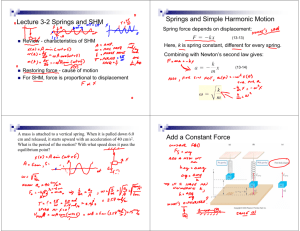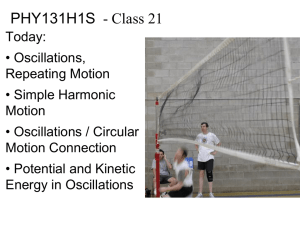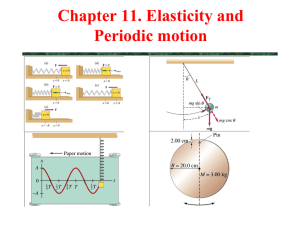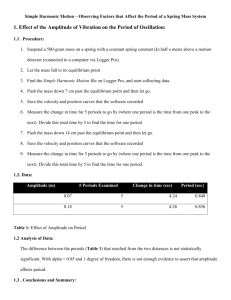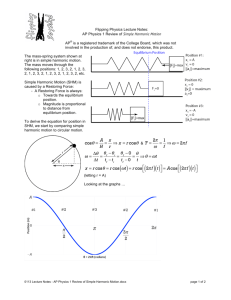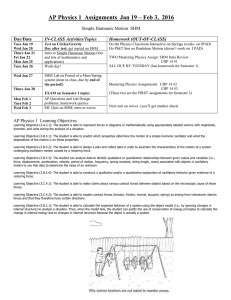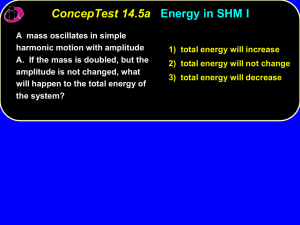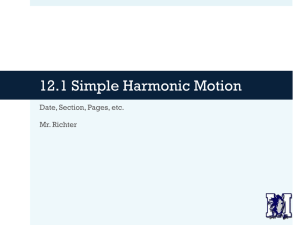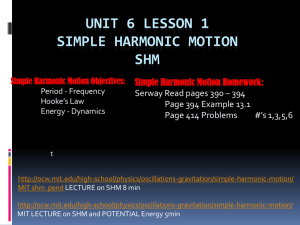Honors Physics Vibrations and Waves Simple Harmonic Motion
advertisement
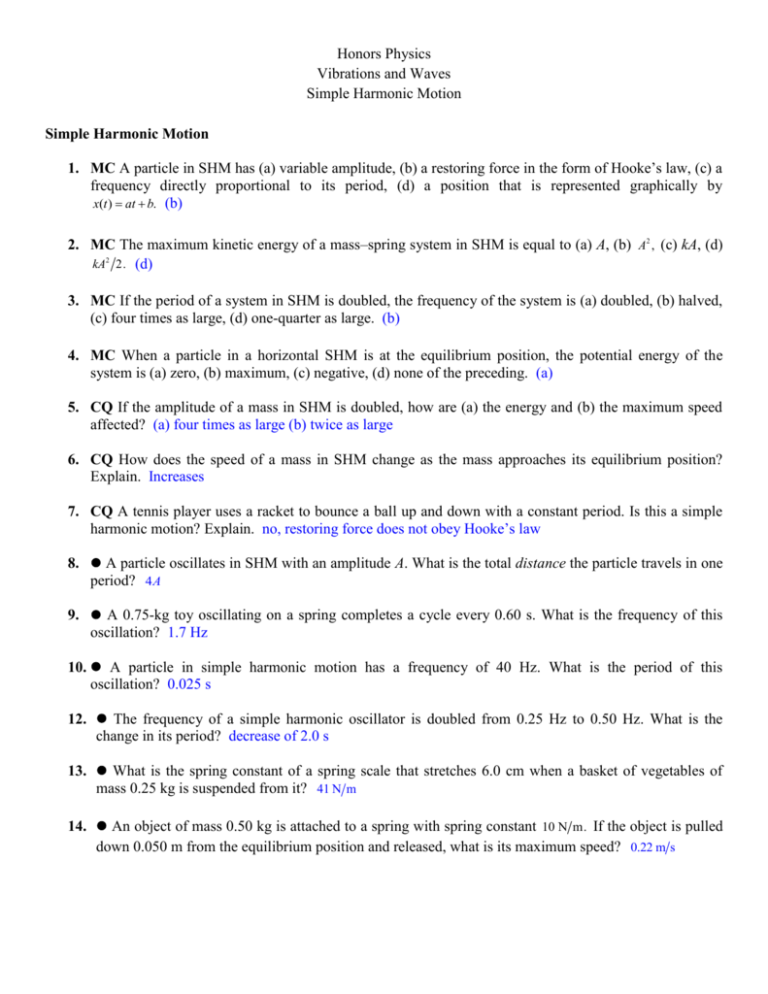
Honors Physics Vibrations and Waves Simple Harmonic Motion Simple Harmonic Motion 1. MC A particle in SHM has (a) variable amplitude, (b) a restoring force in the form of Hooke’s law, (c) a frequency directly proportional to its period, (d) a position that is represented graphically by x(t ) at b. (b) 2. MC The maximum kinetic energy of a mass–spring system in SHM is equal to (a) A, (b) A2 , (c) kA, (d) kA2 2. (d) 3. MC If the period of a system in SHM is doubled, the frequency of the system is (a) doubled, (b) halved, (c) four times as large, (d) one-quarter as large. (b) 4. MC When a particle in a horizontal SHM is at the equilibrium position, the potential energy of the system is (a) zero, (b) maximum, (c) negative, (d) none of the preceding. (a) 5. CQ If the amplitude of a mass in SHM is doubled, how are (a) the energy and (b) the maximum speed affected? (a) four times as large (b) twice as large 6. CQ How does the speed of a mass in SHM change as the mass approaches its equilibrium position? Explain. Increases 7. CQ A tennis player uses a racket to bounce a ball up and down with a constant period. Is this a simple harmonic motion? Explain. no, restoring force does not obey Hooke’s law 8. A particle oscillates in SHM with an amplitude A. What is the total distance the particle travels in one period? 4A 9. A 0.75-kg toy oscillating on a spring completes a cycle every 0.60 s. What is the frequency of this oscillation? 1.7 Hz 10. A particle in simple harmonic motion has a frequency of 40 Hz. What is the period of this oscillation? 0.025 s 12. The frequency of a simple harmonic oscillator is doubled from 0.25 Hz to 0.50 Hz. What is the change in its period? decrease of 2.0 s 13. What is the spring constant of a spring scale that stretches 6.0 cm when a basket of vegetables of mass 0.25 kg is suspended from it? 41 N m 14. An object of mass 0.50 kg is attached to a spring with spring constant 10 N m. If the object is pulled down 0.050 m from the equilibrium position and released, what is its maximum speed? 0.22 m s 15. A 1.800 kg mass is in in a horizontal simple harmonic motion on a frictionless surface while attached to a spring. The spring constant is 15.00 N/m and the amplitude of the mass’s motion is 0.25m. The mass is released from the positive 0.25 m position Find the following: 1. Period of a cycle 2. Frequency of a cycle 3. The angular velocity of the mass’s motion 4. The position of the mass at the following times after its release: a. 1.50seconds b. 6.40 seconds c. 5.00 minutes 5. The velocity of the mass at the following times after its release: a. 0.75 seconds b. 1.60 seconds c. 2.50 minutes Answers #15 1. 2.177s 2. 0.4594/s or 0.4594 Hz 3. 2.886/s 4. a. -0.094m b. +0.23 m c. +0.072m 5. a. -0.598 m/s b. +0.718 m/s c. +0.431 m/s
